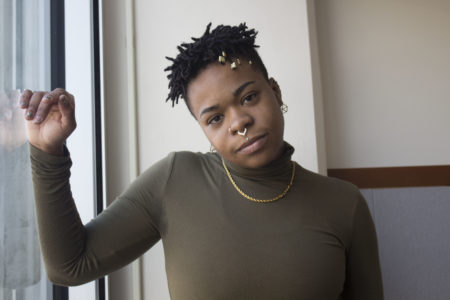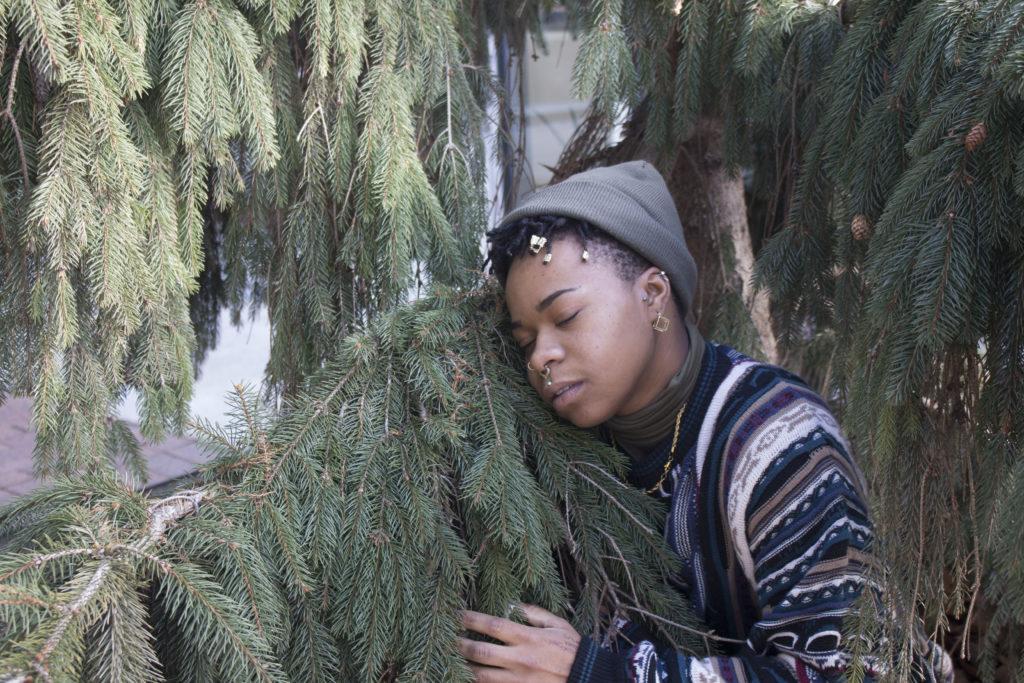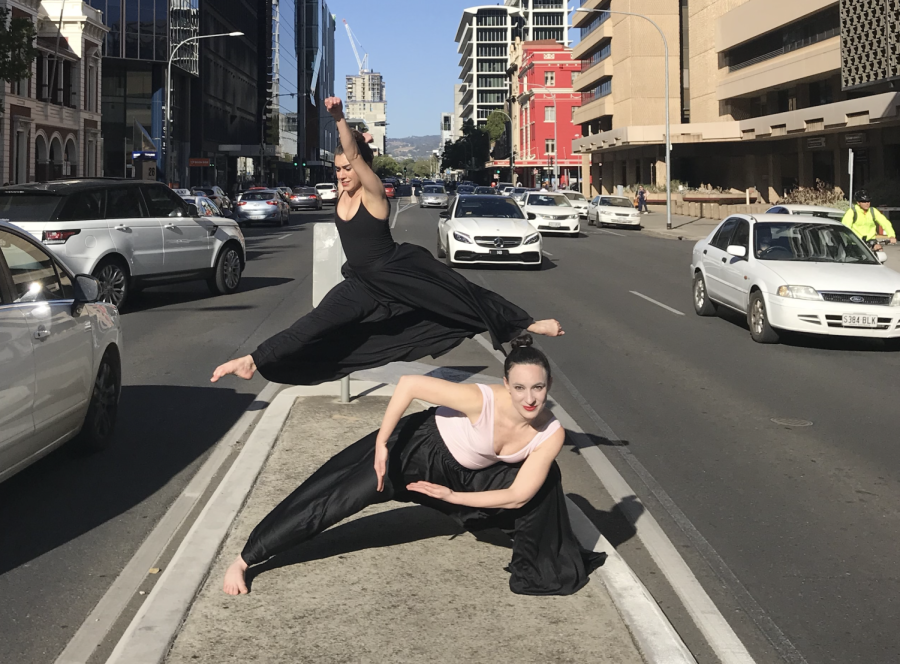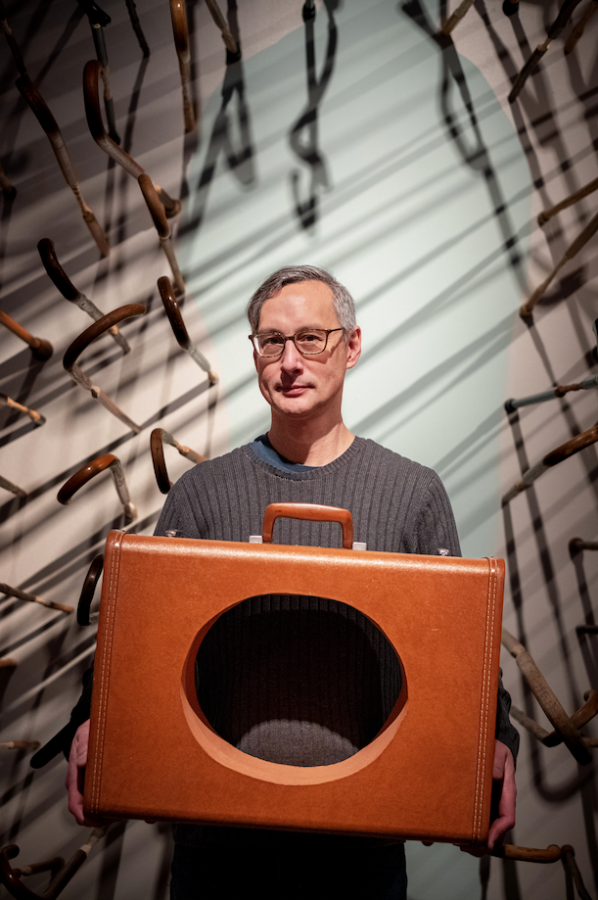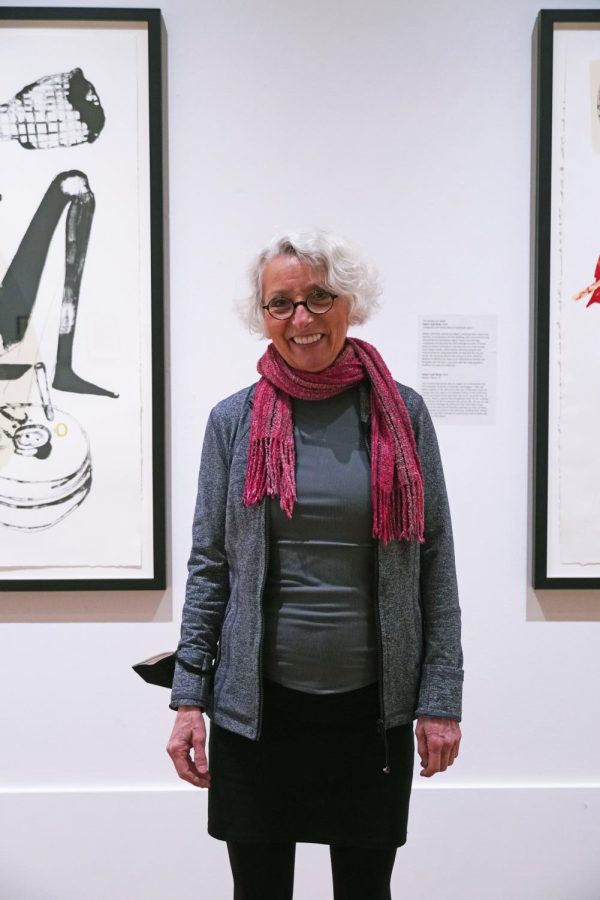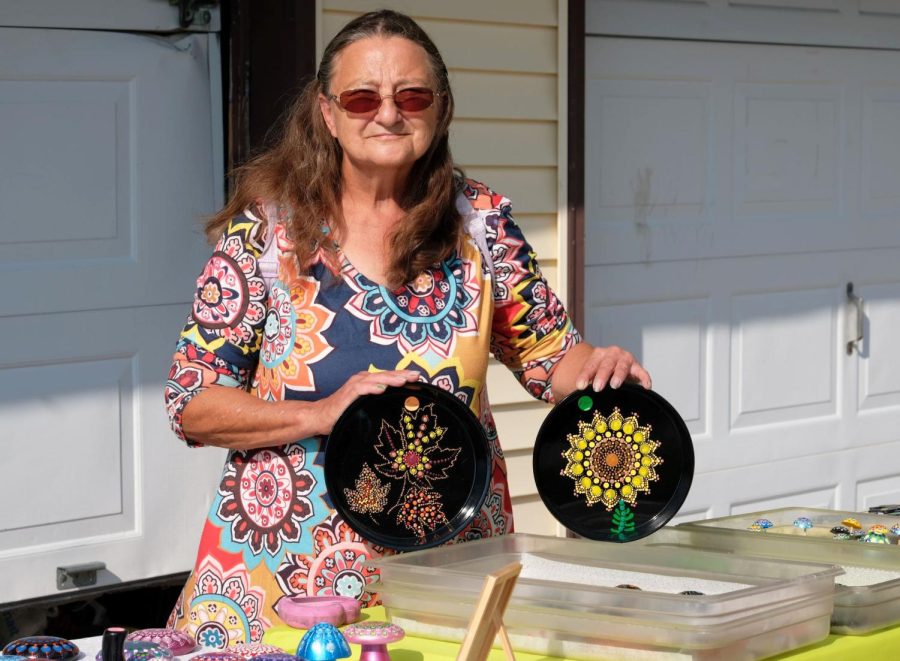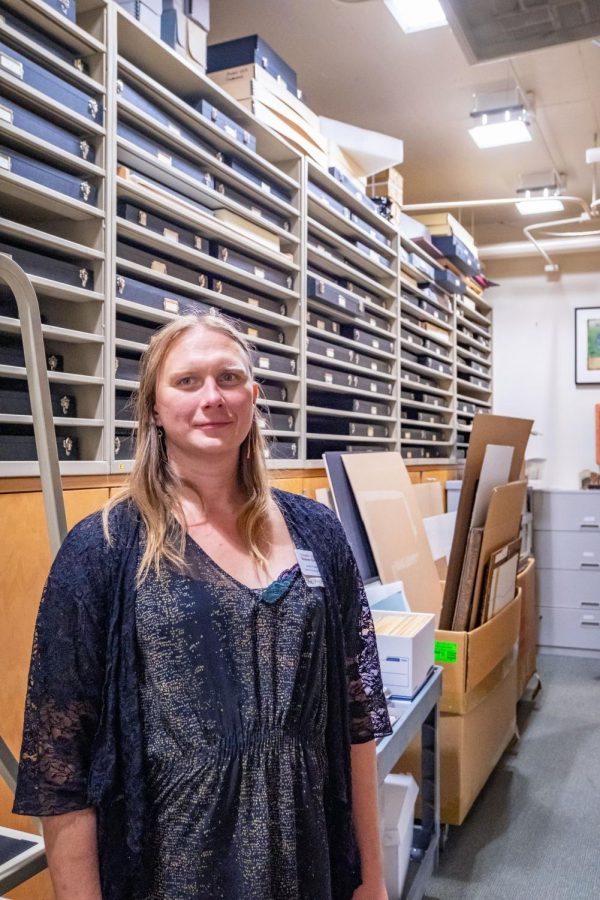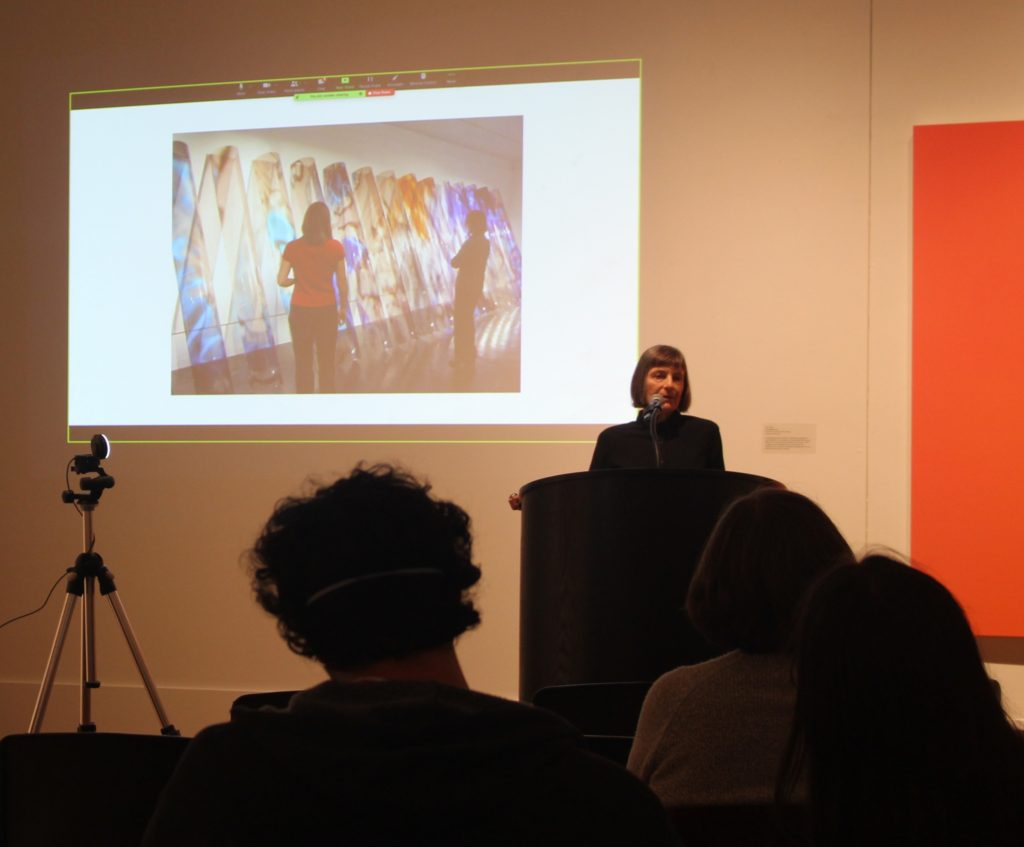Megan Tcheng
tchengme@grinnell.edu
When Elliott Maya ‘18 slid into the plastic-lined seat across from me, the hustle and bustle of the Spencer Grille lunch rush instantly blurred into the background.
Sporting a purple lipstick-tinted grin and the kind of effortless look that everyone hopes to achieve (but, quite frankly, could never possibly imitate), Elliott did not have to ask for my attention. Instead, with their unassuming confidence and sheer quality of character, Elliott quietly and effortlessly drew me into their world.
Elliott’s mind works in a way that is entirely their own.
As I quickly learned, Elliott lives in a constant state of self-reflection and self-critique. At any given moment, their mind is filled with an endless store of questions, which can range from musings like “How do you describe the taste of someone else’s mouth?” to thoughts like “What language does brick speak?” Their internal interrogations, in turn, motivate their artistic expression and allow for the outward extension of their art.
“If you’re crying about something, make art about it. If you’re scared about something talk about it, but also talk to it… and try to get down to the root of it,” Elliot advised. “Constant interrogation of yourself and the things that are around you is important.”
Unlike many aspiring artists of our generation, Elliott possesses a level of poise and unapologetic honesty that cannot be learned. Their artistic expression draws directly from the heart – not from the sappy, clichéd land of Valentine’s Day greeting cards and pot-bellied cupids, but rather from the raw and resounding terrain of shameless self-expression.
As Elliott articulated, “I don’t want to play by the rules because the rules haven’t gotten us anywhere. I want to be scary in the purest of ways… so human that I’m almost monstrous. I want to be so raw and open that people won’t know what to make of me.”
Over the course of our half-hour long interview, Elliott delved into the specifics of their perspective as an artist, an activist and a current college student. Without hesitation, they divulged private triumphs and challenges, discussed fears and debated hot-topic politics. With each passing minute and each shifting dialogue, Elliot articulated their goals as an artist and refined the mechanisms of their artistic process.
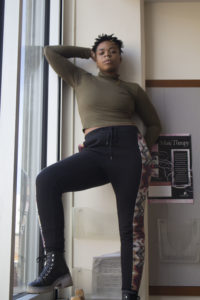
Specifically, as a poet, author, visual artist and self-identified activist, Elliot approaches their art through the focused lens of self-expression. Drawing from a range of themes, including those of race, gender and sexuality, they blend elements of social activism and personal experience into their art.
“My perspective is first and foremost as a person of color, secondarily as a queer person, and third, as a trans and disabled person,” Elliott explained. “My work is either asking people to address those same issues or exploring how I interact with that dissonance.”
Over the course of their artistic career, Elliott’s work has taken on a range of tones, topics and viewpoints. Drawing inspiration from their environment and from their daily life, they have produced works of poetry, prose and visual art that discuss the nuances of identity, race and family. Elliott’s most recent works attempt to unravel their personal experiences with depression and mental health.
“In our society we don’t like to see ugliness, let alone other people’s ugliness, because it feels too honest and raw… [Instead,] we have this inclination to turn away and to not address people’s suffering,” they explained. “We need to respect the fact that we’re in pain and that it hurts. For me, it was a political act of vulnerability to show firsthand what [pain] could look like for some people and to feel it publicly and to not feel ashamed.”
The personal nature of Elliott’s art plays into both their final product and their artistic process. As an English and Gender, Women, and Sexuality Studies double major with an American studies concentration, Elliott has spent the last three years of their college career balancing their art with the demands of student life. For them, however, maintaining that balance involves an important trade-off between personal drive and the acceptance of one’s own limitations.
“Because of our society and the way it works, we have this drive to continue producing, to the point where I don’t think I do things for fun anymore,” Elliott confessed. “Art is a way that you learn to look at the world, and it’s important. But it’s also important to step back and say ‘I’m doing this because I enjoy it, not because I’m getting something from it’ … Right now, I’m learning how to do exactly that.”
Before we headed our separate ways, I asked Elliott to share their advice for future artists and for any individual who is struggling to find something to say. Their simple response mirrored their unapologetic and determined approach to artistic expression.
“Be as loud as you need to be, but also find the strength that is quietness” they advised. “People aren’t going to like you and people aren’t going to like your art for a long period of time, for a myriad of [reasons]. But that doesn’t mean that your art isn’t valid or important.”
